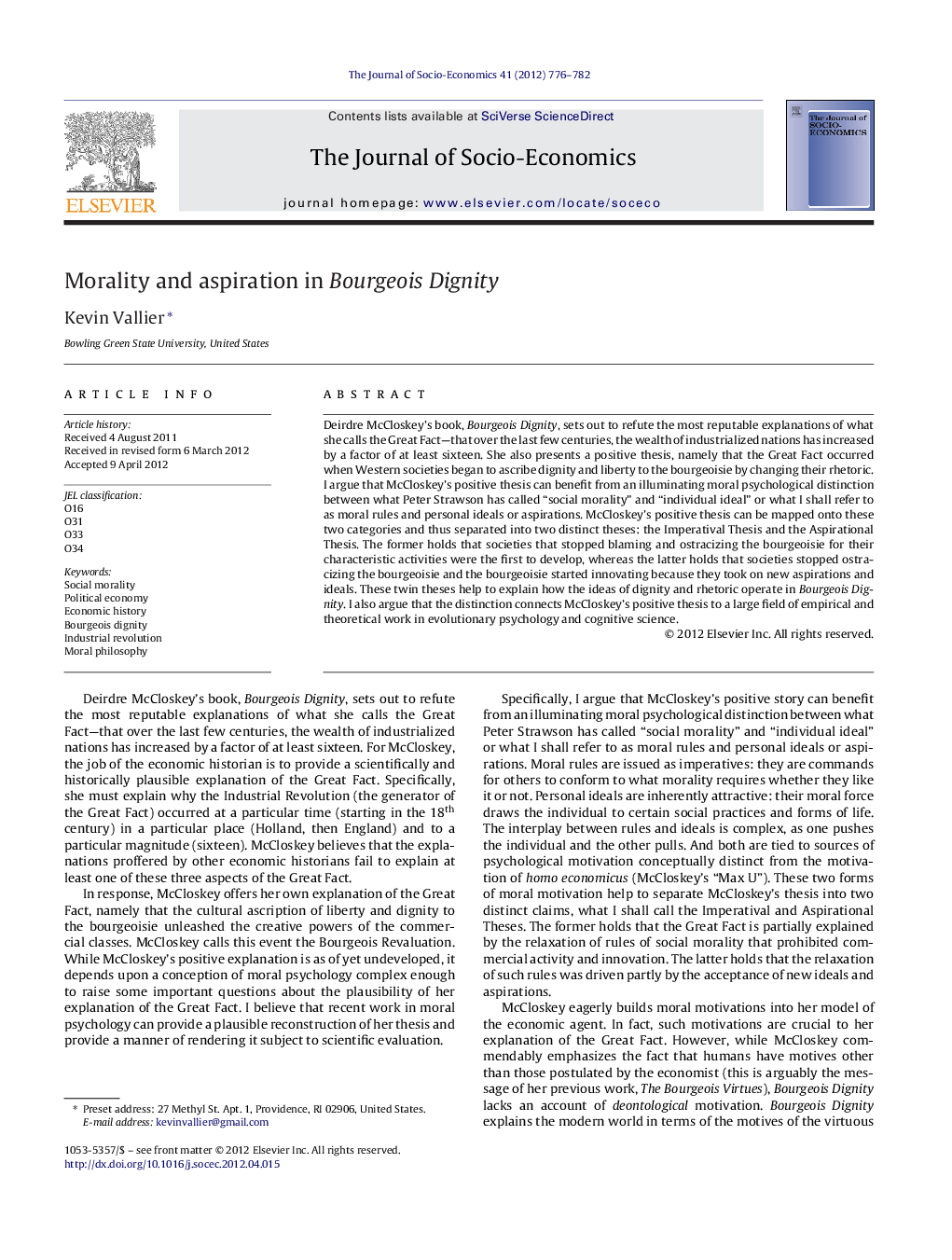| کد مقاله | کد نشریه | سال انتشار | مقاله انگلیسی | نسخه تمام متن |
|---|---|---|---|---|
| 969931 | 1479537 | 2012 | 7 صفحه PDF | دانلود رایگان |

Deirdre McCloskey's book, Bourgeois Dignity, sets out to refute the most reputable explanations of what she calls the Great Fact—that over the last few centuries, the wealth of industrialized nations has increased by a factor of at least sixteen. She also presents a positive thesis, namely that the Great Fact occurred when Western societies began to ascribe dignity and liberty to the bourgeoisie by changing their rhetoric. I argue that McCloskey's positive thesis can benefit from an illuminating moral psychological distinction between what Peter Strawson has called “social morality” and “individual ideal” or what I shall refer to as moral rules and personal ideals or aspirations. McCloskey's positive thesis can be mapped onto these two categories and thus separated into two distinct theses: the Imperatival Thesis and the Aspirational Thesis. The former holds that societies that stopped blaming and ostracizing the bourgeoisie for their characteristic activities were the first to develop, whereas the latter holds that societies stopped ostracizing the bourgeoisie and the bourgeoisie started innovating because they took on new aspirations and ideals. These twin theses help to explain how the ideas of dignity and rhetoric operate in Bourgeois Dignity. I also argue that the distinction connects McCloskey's positive thesis to a large field of empirical and theoretical work in evolutionary psychology and cognitive science.
► Bourgeois Dignity claims modern economic growth began when societies ascribed dignity and liberty to their bourgeoisie.
► I divide the claim in two based on P.F. Strawson's distinction between social morality and individual ideal.
► The “Imperatival Thesis” maintains that societies which stopped blaming and ostracizing the bourgeoisie were the first to develop.
► The “Aspirational Thesis” holds that societies stopped ostracizing the bourgeoisie due to on new aspirations and ideals.
► I then explain how these theses might be vindicated through further argument.
Journal: The Journal of Socio-Economics - Volume 41, Issue 6, December 2012, Pages 776–782